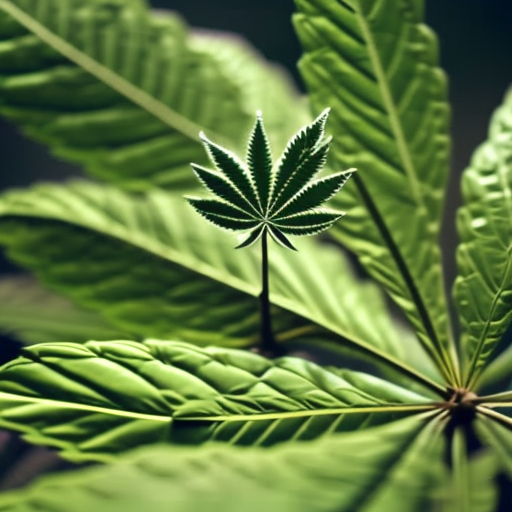
A new study presented at the annual conference of The American College of Chest Physicians (CHEST) in Honolulu suggests that cannabis consumers who contracted COVID-19 had significantly lower rates of intubation, respiratory failure, and death compared to non-users. The study, based on hospital data, analyzed records from 322,214 patients from the National Inpatient Sample, a government database that tracks hospital utilization and outcomes.
Of the patients included in the study, less than 1 percent reported consuming cannabis. The study found that marijuana users were younger and had a higher prevalence of tobacco use compared to non-users. Non-users had higher rates of comorbidities such as obstructive sleep apnea, obesity, hypertension, and diabetes.
The study revealed that marijuana consumers had significantly lower health complications related to COVID-19. On univariate analysis, marijuana users had lower rates of intubation, acute respiratory distress syndrome (ARDS), acute respiratory failure, severe sepsis with multiorgan failure, in-hospital cardiac arrest, and mortality compared to non-users.
To further investigate the association between marijuana use and COVID-19 outcomes, the researchers performed a 1:1 matching analysis that compared marijuana consumers to non-users based on age, race, gender, and other comorbidities including chronic lung disease. Even after matching for these variables, cannabis consumers still had lower rates of intubation, acute respiratory failure, severe sepsis with multiorgan failure, and mortality.
It is important to note that the study used the term “smoking cannabis,” but it is unclear whether other forms of consumption such as vaping or edibles were included. Additionally, the study acknowledges that there is still a significant gap in understanding the potential impact of marijuana use on COVID-19.
Previous studies on cannabis consumption and COVID-19 have shown varying results. One study found that cannabis use was associated with a lower chance of getting COVID-19 but also with more serious infections. Another study found lower COVID-19 severity and better health outcomes among hospitalized patients who consumed cannabis.
In a laboratory study conducted by researchers at Oregon State University, certain cannabinoids were found to potentially prevent COVID-19 from entering human cells. However, this study focused on specific cannabinoids under lab conditions and did not assess marijuana smoking by patients themselves.
While the study suggests that cannabis consumption may have beneficial effects on COVID-19 outcomes, it is important to consider other factors such as tobacco smoking, which is widely considered an additional health risk for COVID-19.
During the early months of the pandemic, some individuals made unsubstantiated claims about the preventive or curative properties of cannabis or CBD against COVID-19. These claims were met with caution and enforcement action by regulatory authorities such as the Food and Drug Administration (FDA) and Federal Trade Commission (FTC).
In conclusion, this new study adds to the growing body of research on the potential impact of marijuana use on COVID-19 outcomes. Further investigation is needed to fully understand the relationship between cannabis consumption and COVID-19. It is crucial to rely on scientific evidence and conduct rigorous studies before making any definitive conclusions or recommendations regarding cannabis use in relation to COVID-19.

